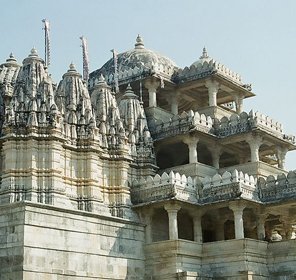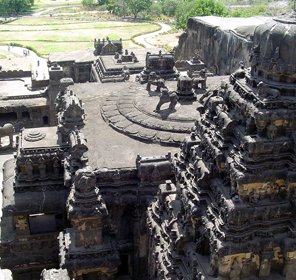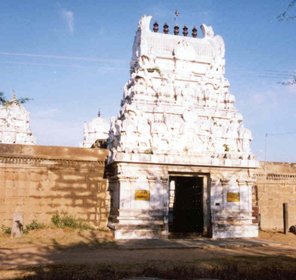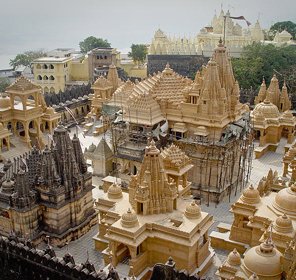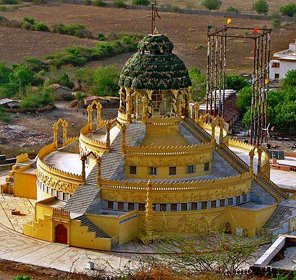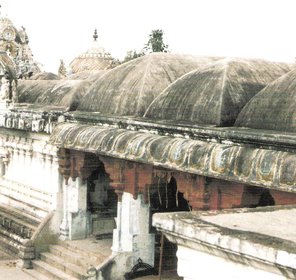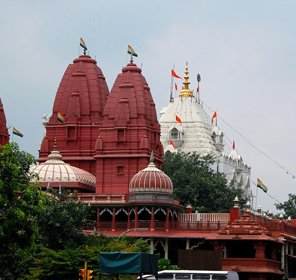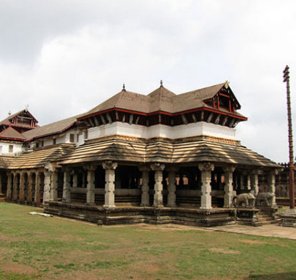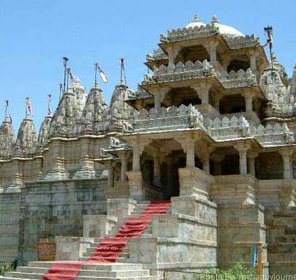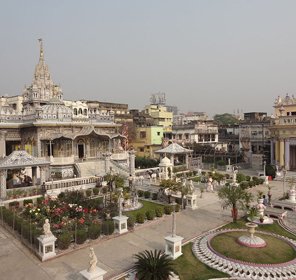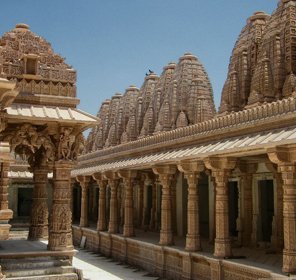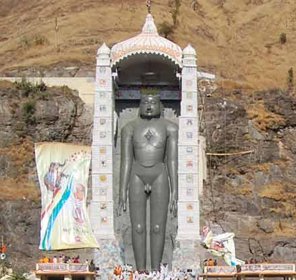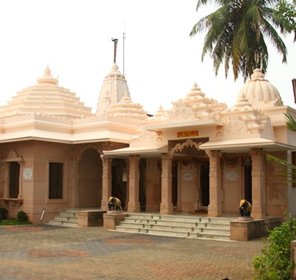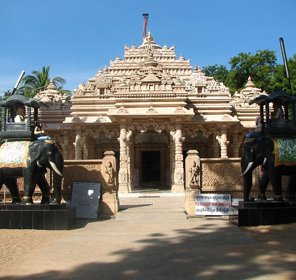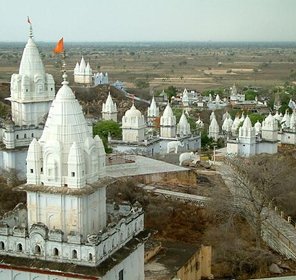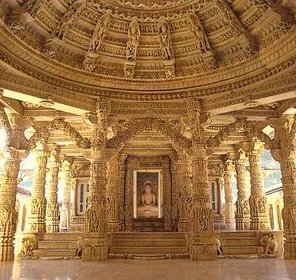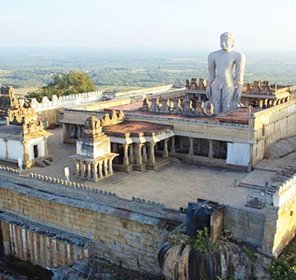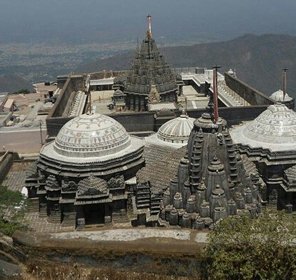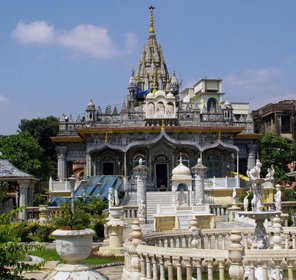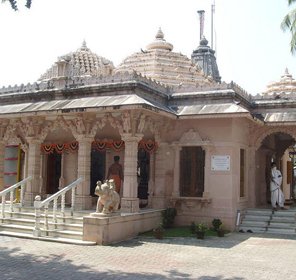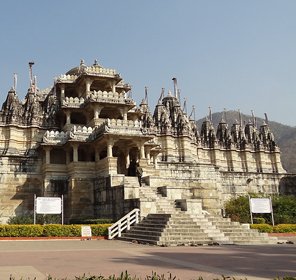The Way of Life
The Jain Dharma has a code of conduct that guides Jains to live an ideal life. In short, the code is made up of the following five vows, and all of their logical conclusions:
1) Ahimsa (non-violence) 2) Satya (truthfulness) 3) Achaurya (non-stealing) 4) Aparigraha (non-possessiveness) 5) Brahmacharya (chastity).
Jain religion focuses much attention on Ahimsa (Non-violence) and Aparigraha (non-possessiveness towards material things) through self-control, self-imposed penance, abstinence from over-indulgence, voluntary curtailment of one's needs, and the consequent subsiding of the aggressive urge.
Vegetarianism is an extremely integral part of a Jain's way of life. The concept is based on compassion for living beings, Jiva Daya. The practice of vegetarianism is seen as an instrument for the practice of non-violence and peaceful, cooperative coexistence. Jains are strictly vegetarians, consuming only one-sensed beings, primarily from the plant kingdom.
While the Jain diet does, of course, involve harm to plants, it is regarded as a means of survival which involves the bare minimum amount of violence towards living beings. (Many forms of plant material, including roots and certain fruits, are also excluded from the Jain diet due to the greater number of living beings they contain owing to the environment in which they develop.
The Philosophy
Jains believe that God did not create the universe. If God created it, then who created God ? Who created the creator? If God has created the universe, he has to have a desire to create. The desire makes the God imperfect and he cannot be imperfect. From another angle, if God carries out the task of creation and destruction without any purpose then it becomes a meaningless game. If he carries out all this work on account of his supreme grace he would have made all Jivas (souls) happy and he would have created things that would have given happiness to all. But that is not the case. Therefore, God must not be managing the affairs of the universe. On the other hand, Jainism thinks that every human being has the ability to attain the status of God.
Since God is omniscient, omnipotent, and devoid of desires, and passions, He could not be interested in the matters of universe. Some claim that all creatures are God's images and we are all parts of Him?" If so, then, we should all have unlimited bliss, perfect perception, perfect knowledge and perfect conduct. But that is not true. Therefore, we cannot be a part of the God or his images.
Jain Concept of Universe
As per Jain beliefs, God has absolute knowledge called Kevalgyan. Therefore, he reveals the essential and real form of the universe. He revealed that the world is without a beginning. It has no beginning. It has no end. The universe does undergo continuous change. Production and disposal are always going on. But entities never get destructed. They are always present in dhrauk form. Behind this eternal process there does not exist anyone's planning or organization. The whole universe is a self-regulated one.
For living beings, his/her karma plays an important role. Karma is finest matter that our soul attracts based on our thought, speech and/or action. Bad karma pollutes the inherent qualities of the soul. The bondage and deliverance of each individual belong to himself or herself. The experience of happiness or sorrow belongs to each individual and the experience is his own. According to his past karma, his present fate is decided, and his future will be decided based on his presented the balance of past karma.
The Doctrine of Anekanta (Manifold Aspects)
Anekantväd is the basis of Jainism. It is the life-force of the Jain philosophy. Because of the beginning-less past and the endless future, a common person cannot perceive innumerable qualities and infinite modes of an entity (sat; dravya). At a single moment he/she can be aware of one or few qualities and modes of the substance. This complex subject of eternity and transitoriness of the substance involving innumerable qualities and infinite modes leads to the doctrine of anekantavada, (manifold aspects). In other words, one cannot fully describe the nature of substance without anekantavada.









